Many allies are reluctant to send warships to join the US-led naval coalition, a sign of disagreement in efforts to counter the Houthis in the Red Sea.
The Spanish Ministry of Defense announced on December 24 its decision to refuse to join the US-led coalition to protect the Red Sea from attacks by Houthi forces in Yemen.
The Pentagon announced last week that a total of 20 countries had agreed to join the maritime coalition carrying out Operation Protective Edge of Prosperity (OPG), in response to Houthi attacks on cargo ships in the Red Sea. Spain was initially announced by the US to be part of the coalition, so Madrid's decision to decline to join was like a "cold shower" for Washington.
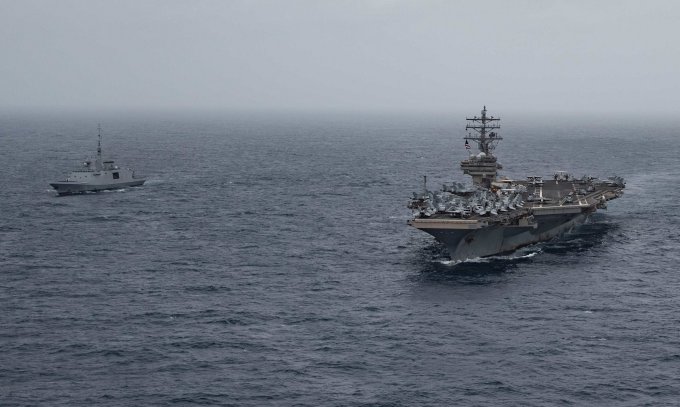
The frigate Languedoc and the aircraft carrier USS Ronald Reagan sail in the Arabian Sea in 2021. Photo: US Navy
Maritime expert John Konrad said the US was forced to form a multinational coalition to patrol the Red Sea, because the US Navy did not have enough warships and manpower to conduct escort operations and protect cargo ships passing through the world's busiest shipping lane. Building a 20-nation coalition would give them powerful resources in terms of equipment and intelligence to control large areas in the Red Sea and the Arabian Sea.
"One of the biggest problems with the operation is that only a few countries have agreed to deploy warships or key assets to the coalition, while the rest have only sent small numbers of military personnel to act as attachés or observers. This is a significant obstacle when key allies refuse to let their warships be under the control of the US Navy," military expert Tyler Rogoway wrote on the War Zone website.
Reuters said the Spanish navy would only agree to participate in operations led by the European Union (EU) or NATO. Italy has deployed the missile frigate Virginio Fasan to the region, but it will not join the OPG, which will be under the command of the US-run Specialized Unit 153.
A UK Ministry of Defence spokesman said last week that the UK would contribute the air defence destroyer HMS Diamond to the alliance, while a series of other ships in the region including HMS Lancaster, HMS Chiddingfold, HMS Middleton, HMS Bangor and RFA Cardigan Bay would continue to operate independently.
The French missile frigate Languedoc is present in the Red Sea and shot down a drone deployed by the Houthis earlier this month, but it is not under the OPG’s command. Australia is only sending 11 personnel, while Greece has committed to sending a frigate of an unknown type.
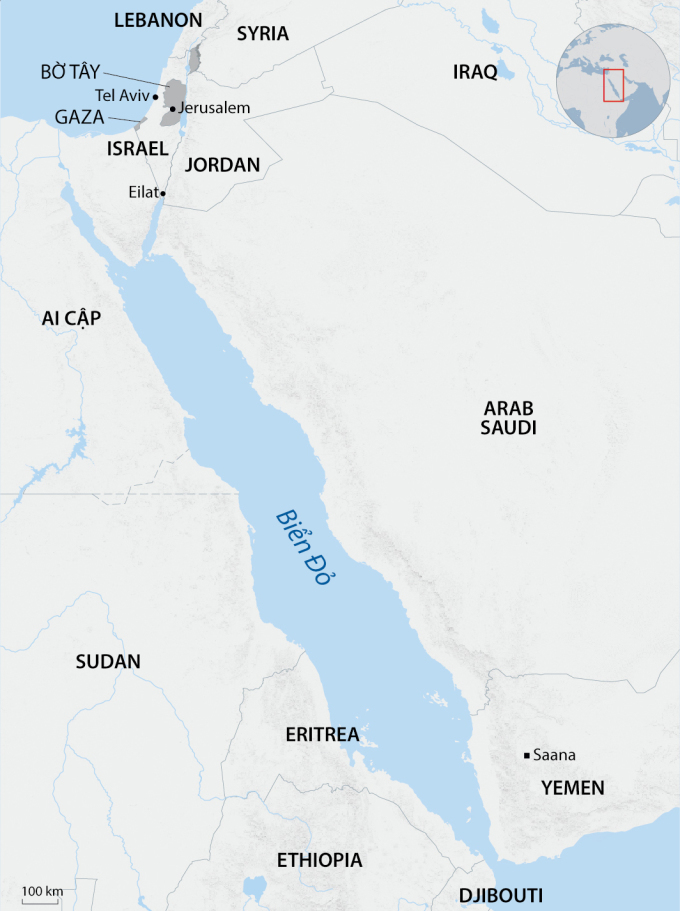
Location of the Red Sea. Graphics: AFP
Pentagon spokesman Pat Ryder declined to comment last week on why Bahrain was the only Arab country to publicly join the OPG. Regional powers such as Saudi Arabia and Egypt have not expressed any intention to join the US-led coalition.
"Establishing a multinational coalition for such large-scale operations is never easy, but the move by America's closest allies is clearly a significant step backward," Rogoway commented.
The Houthis, who have carried out several attacks on shipping in the Red Sea in support of Hamas in its conflict with Israel, issued a statement welcoming Spain's stance, saying they appreciated that Madrid "did not fall for the lies on maritime issues" from Washington and London.
Vu Anh (According to Reuters, Drive )
Source link


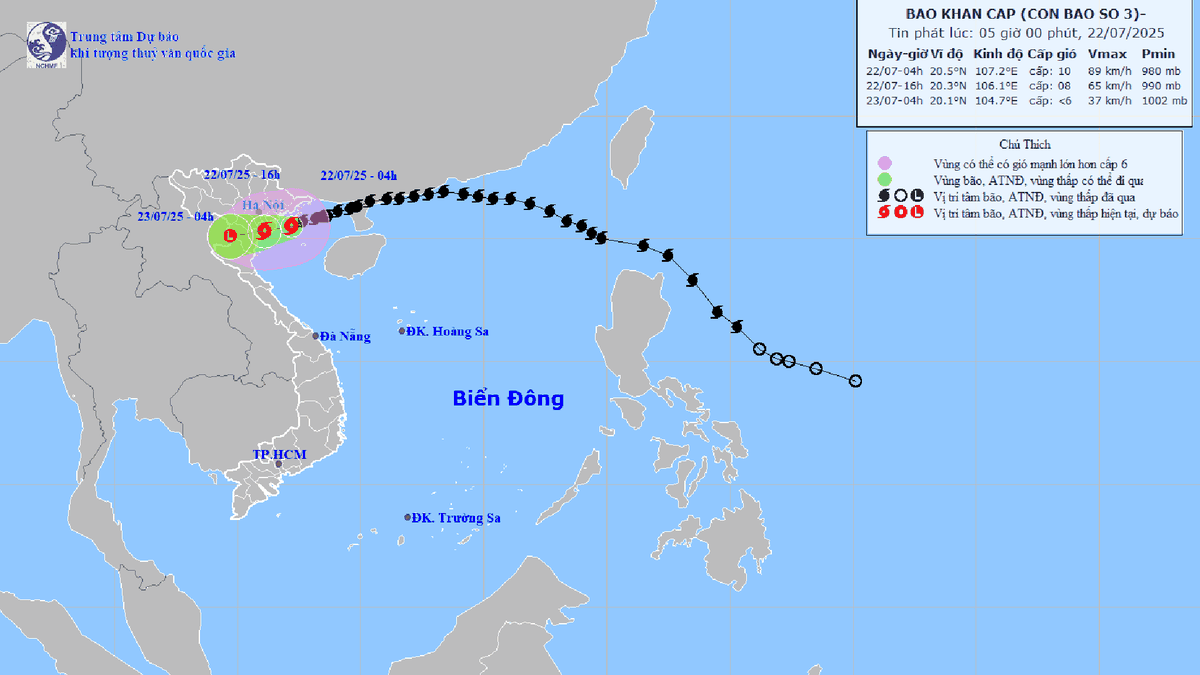




















![[Photo] National Assembly Chairman Tran Thanh Man visits Vietnamese Heroic Mother Ta Thi Tran](https://vphoto.vietnam.vn/thumb/1200x675/vietnam/resource/IMAGE/2025/7/20/765c0bd057dd44ad83ab89fe0255b783)








































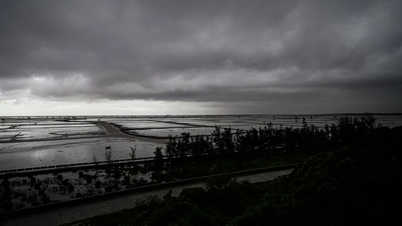

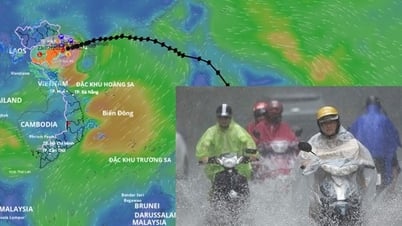

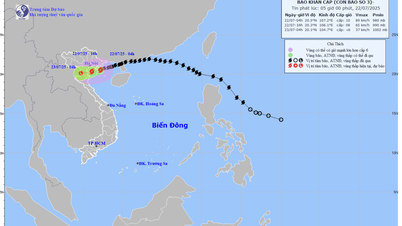

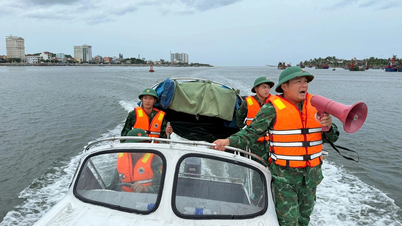

































Comment (0)